Documenting My Life 2015-2013Back to newer entries Older entries here 2013-2010 |
This past summer 18 students packed their suit cases, got their passports and plane tickets and delved right into an experience that will remain with them forever. My collaborative efforts with my colleagues in Austria proved to be an inspirational success. My students and I spent 4 weeks comparing healthcare systems. Though the course's emphasis was on healthcare, my students have acquired much more than an understanding of how the different healthcare systems work. All that you have heard about studying abroad remains true. Students gain a hidden intangible advantage that is revealed in conversation, interviews, and moments of decision moment. This advantage clearly is obtained through direct interaction with another culture that allows one to better understand one's own culture and building confidence in one's understanding and ability to address concerns pertaining to one's own culture. It is no surprise that these are the type of individuals employers and professional schools are looking for.

New study abroad course. Sign up! Let's Start The Adventure! You can learn more about this exciting new program here

December 17, 2014

December 17, 2014
The question of how a text should be interpreted dates back to the days when Plato and Aristotle pondered the same question. Over time, scholars have attempted to narrow the scope of focus to simple separable elements of a text, which should be used for interpretation. These elements may include for example: the time period the text was written, by whom it was written, the form in which it is written, its overt functions, the individual characters? personalities, symbols present, etc. As the scopes became narrower, and elements of the text became separable, so too did various literary schools of critical theory develop. Theories based on the separable elements might also have gained support from other fields of scientific study. By early 20th century, theories on analyzing literary texts have gained momentum with help from a variety of disciplines, including and not limited to: linguistics, anthropology, psychology, economics, biology, sociology, and the humanities. These along with other disciplines have aided in the flourishing of structuralist and psychoanalytical theories. In this essay, I will summarize each of these theoretical approaches with examples from fairy tales...More Here
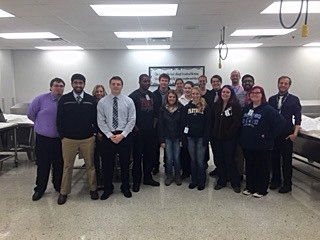
December 4, 2014
This week marks the end of one of my courses, more specifically, the anatomy II lab. I wrapped it up in fine style as usual. My students gave presentations and we visited a cadaver lab in a medical school, which to our delight was partially conducted by one of my former students (Paul Woods: 4th from left (white shirt)), who is on his way to becoming a doctor . Normally, I would have my students write a paper based on the material they present. This term, I decided of giving them the option of creating a webpage instead. Some actually opted to do this and seemed to have fun doing it. It does require, however an understanding of the HTML coding. So, those who wanted to do the webpage sat in on my HTML workshop. For those who had none to very experience with HTML, my workshop seemed to work well with their enthusiasm, as now the pages are coming in and are looking good. The great benefit of doing this is simple. You as my viewer will learn more via the research of my students :-)
Here are the links to their pages:
Mad Cow Disease by Alyssa Stoddard and Brody Wood: Mad Cow Disease

December 2, 2014
Now that some of the gun smoke has dissipated , I can actually see clearly to write this. Yesterday began literally with a bang for many of us living out here in the country, as the deer hunting season began. In fact I just heard a gun shot, while typing this, a few seconds ago and will hear many more for about another 10 or 11 days. Just about everyone I've met, either hunts or knows someone who hunts, so me being a curious individual, decided to go ahead and learn what all the excitement is about. I've purchased my weapon of choice, took the hunter's safety course and will soon obtain my hunting license. Not sure how all this will play out, or if it will ever play out. We will both see :-)
For more information on hunting, visit this site:
Pennsylvania Game Commission: PGC

November 21, 2014
Living out here in the woods requires not only the ability to detect all that is perceivable by the senses, but also that which may not be perceivable to the senses. According to the American Lung Association, the leading cause of poison induced death is exposure to carbon monoxide (CO), which is not perceivable to the senses. CO is commonly generated during the burning of fuel-fired space heaters, whether the fuel be gas, kerosene, charcoal, oil, or wood. We know that any or a combination of those fuels have been used for centuries and even today to heat homes. The danger isn't using the fuel per se, rather the danger resides in the accumulation of CO produced during the burning of any of those fuels. It is important that when burning any or a combination of fuels that the CO produced can safely leave the house. That means, make sure the chimney isn't blocked and all areas where fuel is being burned are properly vented. This includes the garage, if an automobile is left on to warm up. The physiological consequences of exposure to CO are due to CO binding to hemoglobin rather than oxygen. Hemoglobins function is to carry oxygen throughout the body to supply the various tissues. If CO takes the place of oxygen on hemoglobin than the body's various tissues that need oxygen will be deprived of oxygen, which is NOT GOOD! For starters, one will experience, dizziness, fatigue, nausea among other things. So, monitor CO levels within and surrounding the household. Because it can not be detected by the senses, I purchased an additional CO detector for the house.
For more info., visit these sites:
American Lung Association: www.stateoftheair.org
Consumer Product Safety Commission: www.cpsc.gov
Environmental Protection Agency: www.epa.gov/iaq
Healthy Indoor Air for America’s Homes: www.healthyindoorair.org
Homesafe.com: www.homesafe.com/coalert

November 9, 2014
Well, I think it goes without saying that now I have all this fertile land and live quite a ways from an expensive grocery store, it would make sense for me to learn some gardening. This weekend myself and a colleague of mine, who is also a chemist, and a master gardener yanked out weeds and turned over some soil. Next to my garage, I have in place a 20 x 3 ft raised bed, which I will use for practice. First, with our potato forks we turned over the soil, next we dragged the hoe along the horizontal plane (20 ft.), about 5 inches away from the vertical plane (3 ft.) with the hoe, thereby displacing the soil and creating rows about 3 to 4 inches deep. In total we created 2 rows. We than we placed garlic cloves, each facing down about 4 inches apart, filling both rows. Lastly, using the hoe, we dragged the displaced soil back into its original position, thereby covering the garlic cloves. Now, I eargerly await next spring to reap what I have sewn :-). In the mean time, I am preparing two more raised beds in the back of my house for tomatoes and cucumbers, which I am hoping to plant in February.

October 8, 2014
Time to learn the skeletal muscles.More Here
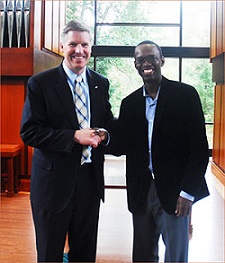
September 26, 2014
On Monday, September 22, the new university chancellor, Patrick Gallagher, took time off from his apparent busy schedule to pay us a visit. As the university looks to move forward after the Nordenberg era, Gallagher seeks to steer us in a direction that may allow for stronger ties with industry and financial sustainability. In my opinion this sounds like an exciting path to be on and maybe the right path. Having lived through the recession and seeing the after effects that continue to ripple through the country, it goes without saying that ideas that foster sustainable financial security and independence should be explored not only at the individual level, but at all levels. I am looking forward to seeing how Dr. Gallagher implements his ideas.

September 25, 2014
Bones provide our bodies with the levers needed for movement, protection of the vital organs, important minerals for the blood, and major cell types needed for defense against invaders and oxygen for cellular respiration. Without bones, we will be crawling defenseless organisms. The various functions of bones, as mentioned will mean that bones must be matched with complimentary features and structures to facilitate carrying out those functions, which in fact is the case, as we will see below. Bones of the skeleton can be initially divided into 2 major classes... More Here
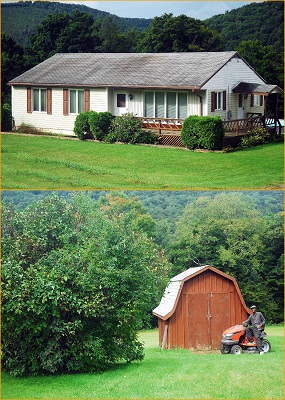
September 12, 2014
Just bought a 5.34 acre piece of property in the country. If you are like me, coming from city life,
adjusting to the country may be slow and frustrating in the beginning, but trust me, it's
worth the peace, quiet and growing space. You may have to learn things the hard way. For starters, avoiding
mowing grass when it is wet. Instead of a nice clean cut, you may see tufts of grass all over your property.
Also, avoid going down declines with a riding lawnmower if the decline may be wet, chances are you may
not get the lawnmower back up without some assistance like a tow! Yes, I have experienced it first hand
already. Speaking of lawnmowers, be sure to have gasoline stored in a container, in fact have several containers.
You may run out of gas unexpectedly with no gas station in sight for over 4 miles, sometimes even farther. These
are just some of the observations I made since living here over the past 3 weeks. These minor tribulations, however,
are easily overshadowed by the gracious sound of the water flow along the border of my property, the peaceful
foraging deers, rabbits and other animals that want to share my space, the luminous light of the moon and stars that illumine my
yard on a clear night, the orchestrated singing by birds on the early mornings..., and it goes on...More on
country livin' in the near future with more pictures.
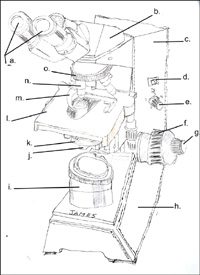
September 2, 2014
One of the most important instruments used in biology is the microscope. This tool allows us to see that which is imperceptable by the naked eye. History has it, that around 1 AD the Romans undertook the task of investigating the properties of glass and how these properties helped magnify objects when one looked through glass. It took roughly another 12 centuries before the understanding of glass led to the production of the first eye glass. Salvino D'Armate of Italy, would become known as the first person to produce the eye glass, providing the wearer with the power of magnification in one eye. Fast forward nearly 3 centuries and we get the first compound microscope. Around the late 1500's, Zacharias Jansen and his father, Hans used thier knowledge of spectacle making and placed several lenses in a tube, today this tube is known to contain two types of lenses, at the top, the ocular lens or eyepiece (what we look through) and at the bottom, the objective lens, which produces the primary magnified image, which in turn is then amplified by the ocular lens. This two-stage magnification is the principle and basis of the compound microscope. More Here
August 27, 2014
| Healthcare in America |
The United States Department of Labor's Bureau of Labor Statistics projects that jobs in the health sciences field will grow anywhere from 20 to 50 percent between now and 2022. As universities and hospitals try to keep pace with the sharp increase of demand for skilled workers in this field, it is also important to remember that this field will not remain static. As America faces new opportunities for technological uses and an ever evolving diverse population, there remain possibilities to restructure not only our health care system, but also the laws affecting our health care system, thereby making for a more efficient and effective system. Leaders knowledgeable broadly about the healthcare system will be needed in all areas of healthcare: nurses, physicians, allied health workers, among many others - This study abroad experience will immerse the student in an international environment where health care and policy differs significantly from the United States, in order that the student may learn a different approach than what is being practiced in America...More Here
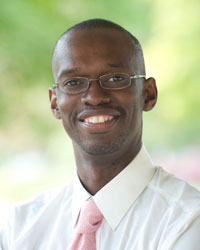
August 25, 2014
This past week as I saw students moving into the dormitories, accompanied by their parents,
I was quickly reminded that another academic year is already upon us. Occasionally, there was time for me to stop
one of them, introduce myself and start a little small talk. "Oh, I want to go to med school", "I'm studying
nursing", "I'm still undecided", "I'm thinking about engineering"...These were some of the remarks I heard when we came around
to discussing majors and future plans. As I begin the academic year, I must keep these remarks in mind
as I continue to develop courses. Questions I have to answer include: How do I prepare them, within my
courses, for those fields? What are newly researched pedagogical techniques in place? Is there new
information within the field of my courses? Every year these types of questions arise and every year I
should have done something in response to them. Looking back, I have. This past year, I have created
a new study abroad course titled "World Comparative Healthcare Systems" (web page coming soon). This course allows students
to travel to Graz, Austria and study the European healthcare system in a hospital setting. Such an experience
is not only what med schools are now looking for, but any employer in the health field.
This will certainly give my students an edge above the rest.
Regarding pedagogical techniques, apart from the conventional classroom setting, I continue to believe that technology can play an important role in
in our current environment. This past summer I have refined my on-line quizzes (see menu on left under science/teaching)
the forums will now be password protected, and more Youtube videos are on the way. There are more ideas I will implement in the near future. Lastly
I have joined several additional organizations that will keep me informed on any current important research pertaining
to any of the courses I teach. With these and other ideas I will implement, I am looking forward to starting my new academic year.
I will provide more as things unfold throughout the term, so keep checking in.

August 1, 2014
History reveals the many questions posed by all who were curious. History also tells us the various means used to answer these questions. These means range from mythological to scientific explanations. By today's standards, a scientific explanation seems to bear more truth and rigor in methods used to arrive at the truth than any other means of explanation. Though the reasonable approach to answer a question apparently would be through science, it has not been the safest approach, as history also tells us. Explanations of natural phenomena have been wrapped within the coating of religion and politics of the time. Therefore, attempts to reach a definitive truth were stymied by the will of religion and politics. Clearly, as the coating of religion and politics eroded over time, so too have the methods attaining a definitive truth evolved. These methods, when minimally influenced or altogether independent of religion and politics, are known as scientific. In this essay I will argue, using ancient texts such as Hesiod's Theogony, Plato's Timaeus, along with classical works by Galileo, Kepler among others, that where religion had significant power over what should be accepted as the truth, science was forced to attribute the findings to a divine purpose, thereby limiting access to the observable truth, which often times existed outside the realm of religion. Conversely, where religion was significantly weakened, science evolved to provide definitive truths, which at times clashed with religious views. To illustrate this even further, I will contrast Plato's understanding of vision, with what has been scientifically proven independent of a religious perspective... More Here
July 3, 2014
The study of cosmology functions to help develop our philosophical world view. While there are many philosophical world views stemming from our understanding of cosmology, one in particular gained prominence in early 20th century. This view is now known as the anthropic principle. Its origins can be traced back to the study of numerology in the 1920's (1). By 1974 the anthropic principle evolved from numerology and formed its own branch of study. Brandon Carter elucidates two versions of the anthropic principle, a weak and a strong. He argues that the weak can be defined in the following fashion: "what we can expect to observe must be restricted by the conditions necessary for our presence as observers", while the strong can be defined simply as: "the universe must be such as to admit the creation of observers within it at some stage"(2) Although, both principles face harsh criticism, specifically, for their inability to provide an explanation for why things occur and to predict the future, among other reasons, the weak anthropic principle does, however, provide us with a valid rule of inference or indirect reasoning, which we can use to explain phenomena. One implication the weak anthropic principle may have, is that humans are limited to observing a universe orderly enough to maintain human life and only an overarching theory can provide can provide an explanation for the order (4). Surprisingly enough, this same mode of reasoning can be traced back to classical mythology. In this reading, I will argue that the weak anthropic principle predates early 20th century numerology and can well be found in Hesiod’s creation myth, Theogony. More Here
June 5, 2014
On June 5, 2014, I returned to my former institution to watch my former students graduate from the nursing program. Needless to say, there is great satisfaction in knowing that as a young instructor, I have contributed significantly to producing a new batch of nurses and a knowledgeable group of new colleagues.
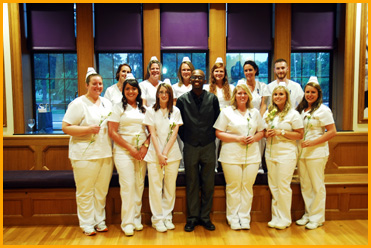

May 17, 2014
"..and you hear people say that lovers are seeking for their other half; but I say that they are seeking neither for the half of themselves, nor for the whole, unless the half or the whole be also a good; men will cut off their own hands and feet and cast them away; if they think them evil. They do not, I imagine, each cling to what is his own, unless perchance there be someone who calls what belongs to him the good, and what belongs to another the evil; for there is nothing which men love but the good. Is there anything?" - Diotima, Symposium by Plato
The above quotation contains within it the underlying rational that can be used to explain the seemingly complex behavior for Thomas Hardy’s protagonist, Tess, of Tess of the D’ubervilles. First published in 1891 in a bowdlerized serial version and welcomed with a storm of controversy for its treatment of marriage and religion, after it was restored to the author's (Thomas Hardy) intended novel form, this story presents the reader with the author's perspective on fate, love and desire... More Here
May 1, 2014
| Ending Another Year |
My first year in my new position comes to an end. It should come as no surprise, but it was a very successful year with my students! See video.
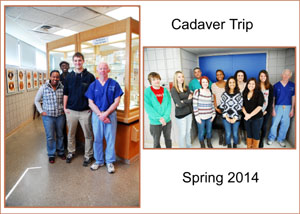
April 15 & 18, 2014
On Tuesday, April 15 and Friday, April 18, I took a few students to visit a cadaver, one way to wrap up the entire anatomy and physiology experience. Here is what a few of them had to say... More Here
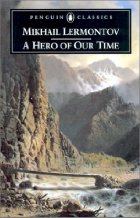
First published in 1840, Mikhail Lermontov artfully portrays what Michel Foucault nearly 130 years later articulates in the History of Sexuality, namely the role discourse plays in creating the object it sets out to study or understand. In A Hero of Our Time, the protagonist, Pechorin, finds himself at odds with the world. He is proud, energetic, strong-willed, and highly confident, but, finding that life does not measure up to his expectations, he becomes embittered, cynical, and bored. At the young age of 25, he has experienced all that life has to offer, and cannot find anything that rouses new interests. Life let him down. So he turns against life, embarking on petty adventures that may involve hurting feelings, killing friends and conniving against his own people. In the novel Pechorin's heart grows cold as he learns the ways of society. Early nineteenth century...More Here

Charlotte Brontë's best known and beloved work, Jane Eyre, has undoubtedly withstood the test of time. Though it was first published in 1847, it reads as if it were written this century, for contemporary readers by a modern day writer. Charlotte draws us into her world by articulating her reader-relatable life experiences using the language of images, a language commonly found in fairy tales. There is no doubt that the use of common fairy tale motifs in telling her life story has made this one of the most enduring, engaging and memorable stories among generations.
As readers, we...More Here